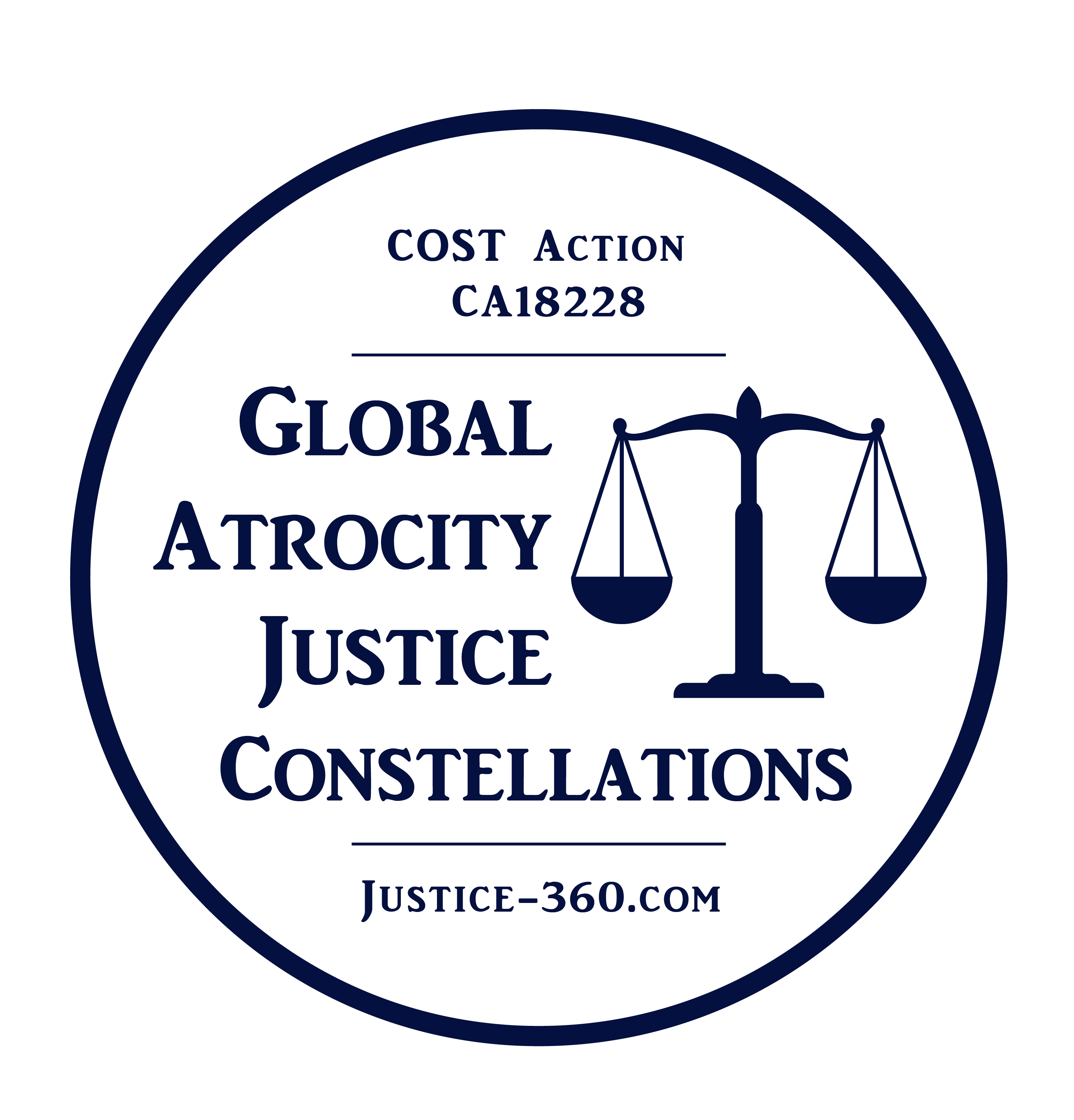The Justice-360 Project: Investigating International Criminal Justice as Seen from States.
Authors: Prof. Mikkel Jarle Christensen, Dr. Fátima da Cruz Rodrigues, Assist. Prof. Sunčana Roksandić Vidlička, Assoc. Prof. Barbora Holá, Dr. Andy Aydın-Aitchison, Dr. Kjersti Lohne, Dr. Sergey Vasiliev.
Since the creation of the International Criminal Tribunal for the former Yugoslavia (ICTY) in 1993, scholarship on international criminal justice has been preoccupied with the functions, context and impact (or lack thereof) of such institutions. The creation of the ICTY was followed by other international(ized) criminal courts and tribunals built to adjudicate criminal responsibility for genocide, crimes against humanity and war crimes in a range of different situations, including Rwanda, Sierra Leone, Cambodia, East Timor, Chad, Kosovo and South Sudan. For most scholars and commentators, these institutions have been the focal point of interest and main objects of investigation. The court-centric focus has largely been reproduced and includes the permanent International Criminal Court (ICC)set up to deal with new situations around the world.
The network on Global Atrocity Crimes Constellations (JUSTICE360) was formed to develop a new, non-court-centric perspective on international criminal justice. Instead of taking the courts and tribunals as its object, this COST Action (CA18228) brings together researchers to work on how different countries perceive and handle international crimes, perpetrators and victims. The goal of this approach, developed and driven by a network that has more than 60 participants, is to contribute an original panoramic view of the global and cross-systemic circulation of international criminal justice into national jurisdictions and societies. Since international criminal courts and tribunals to a large extent depend on states to fulfil their mandate, understanding how international criminal law and justice has been received and has had effects in different countries can yield crucial insights into the structural context in which the courts and tribunals are embedded. It can contribute knowledge about how “the world outside and around”has, in fact, responded to and perceive the fight against impunity.
JUSTICE360 kicked off in September 2019 and will collect data and organize activities until the fall of 2023. Participants in JUSTICE360 come from all over Europe as well as from countries outside of Europe, such as Canada, US or Australia. We also endeavor to include participants from the Global South to the extent we can find additional funding for participants not directly fundable COST Action grants.
In terms of data, we are working to collect information from the different countries represented in JUSTICE360 as well as other countries of interest. The core idea is to collect data on how individual countries have perceived and worked with international crimes, their perpetrators and victims. In doing so, we are aiming to provide a comparative baseline for further studies into the structural context in which international criminal justice plays out. We are working to build this data across three different types of countries: (a) countries without a recent history of atrocities; (b) countries with a recent history of atrocities that consented to international criminal court or tribunal involvement; or (d) countries with recent atrocities which did not consent to such involvement. At a time where there has been significant pushback against international courts in general, and international criminal courts in particular, JUSTICE360 aims to contribute empirically embedded perspectives on how the ideas and practices of these institutions have been received across different types of countries. In other words, the ambition is to investigate how international criminal law ideas and practices have had impact in national systems. The database will be publicly available to researchers, students and stakeholders, and will be used and deepened by the working and research groups of JUSTICE360. In addition to the administrative working groups set up to handle the network and monitor its progress, three research clusters were created at the first big Action meeting in Sarajevo in January 2020. These groups have set out to focus on how media portray international crimes in different countries, what triggered work with international crimes in different national contexts and how international crimes overlap with other criminal justice initiatives (for instance targeting economic crime).
Outside of generating new data, the Action will organize a variety of different events and activities. In addition to the meetings of the network itself, such activities include training schools that focus on aspects of the collective research focus. In terms of training schools, we give preference in particular to young researchers from countries with low-intensity academic systems. We also strive for a fair gender and national representation. The Action also aims to set up Conference Grants for Inclusiveness Target Countries following similar logics. Other outreach activities will establish contacts with stakeholders in different countries and regions. These activities have the double focus of learning from the people who work in national criminal justice systems and sharing the results of the JUSTICE360 research.
In addition to these activities (news on which we will share on this website and our twitter account), we will also use the website to publish blogs on problematiques related to the JUSTICE360 agenda. These blogs will flow from the research being done by individual researchers, as well as more collective endeavors that result from the Action. These blogs are related to the overarching ambition of JUSTICE360 to develop a new collective approach to studying the global reception and impact of international criminal justice. With the blogs, we hope to extend the conversation of the focus of the project to audiences beyond the Action. Audiences that we hope to interact, discuss and develop the project with over the coming years.
With regard to our research, outreach activities and blogs, we welcome questions and comments from stakeholders, academics and students. We look forward to coming to a town near you in the coming years, or meeting virtually here or in other outlets. So stay tuned and don’t be a stranger.
About the authors:

Prof. Mikkel Jarle Christensen is a Professor with Special Responsibilities at the Faculty of Law of the University of Copenhagen, Academic Coordinator of the Centre of Excellence for International Courts, Principal Investigator of the European Research Council-funded The Global Sites of International Criminal Justice (JustSites), and Chair of the COST Action "Global Atrocity Justice Constellations" (JUSTICE-360).

Dr. Kjersti Lohne is a Researcher at the Department of Criminology and Sociology of Law and a co-organizer of the initiative LAW22JULY (Learning, Accountability, Witnessing) of the Faculty of Law at the University of Oslo, Norway.





